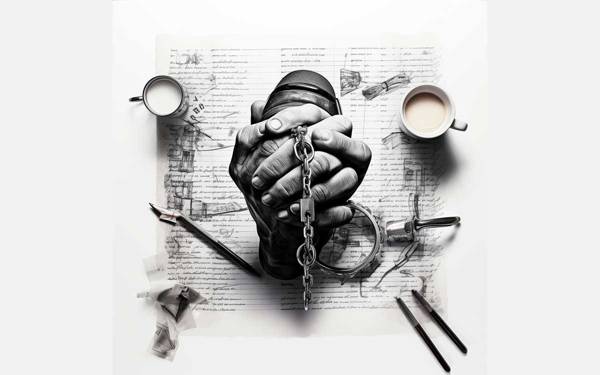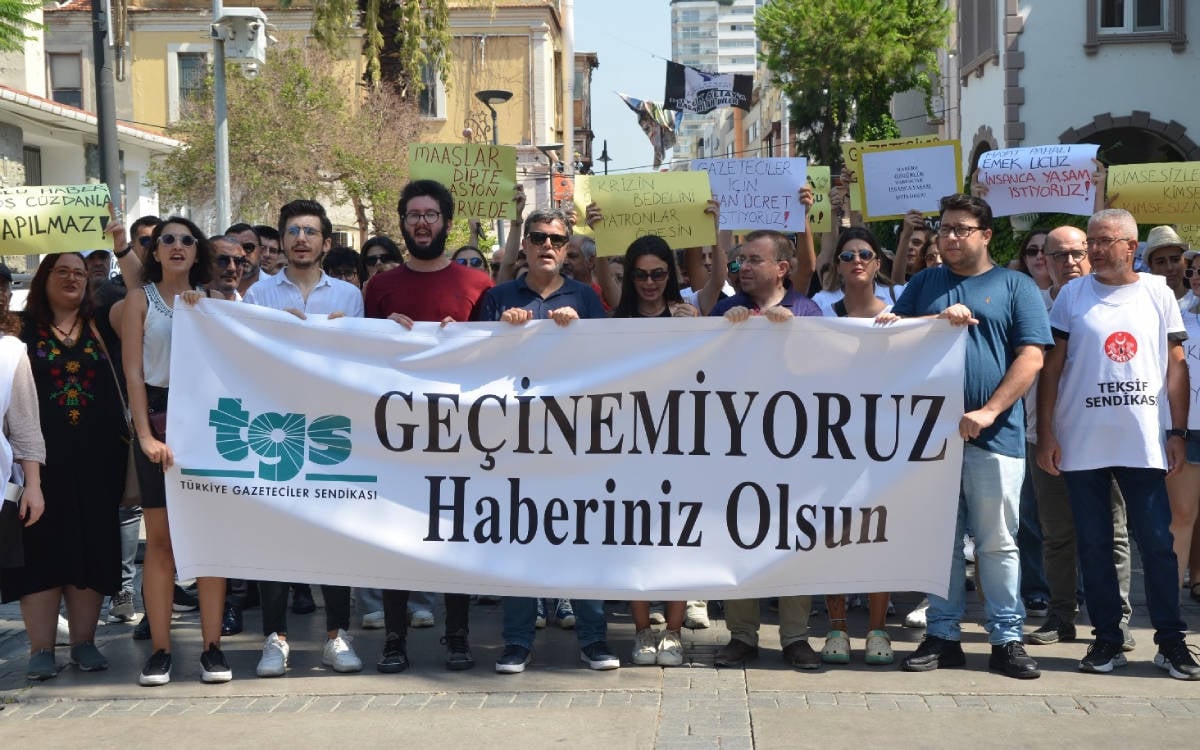BİA MEDIA MONITORING REPORT 2024
The government made journalists' lives a living hell in 2024

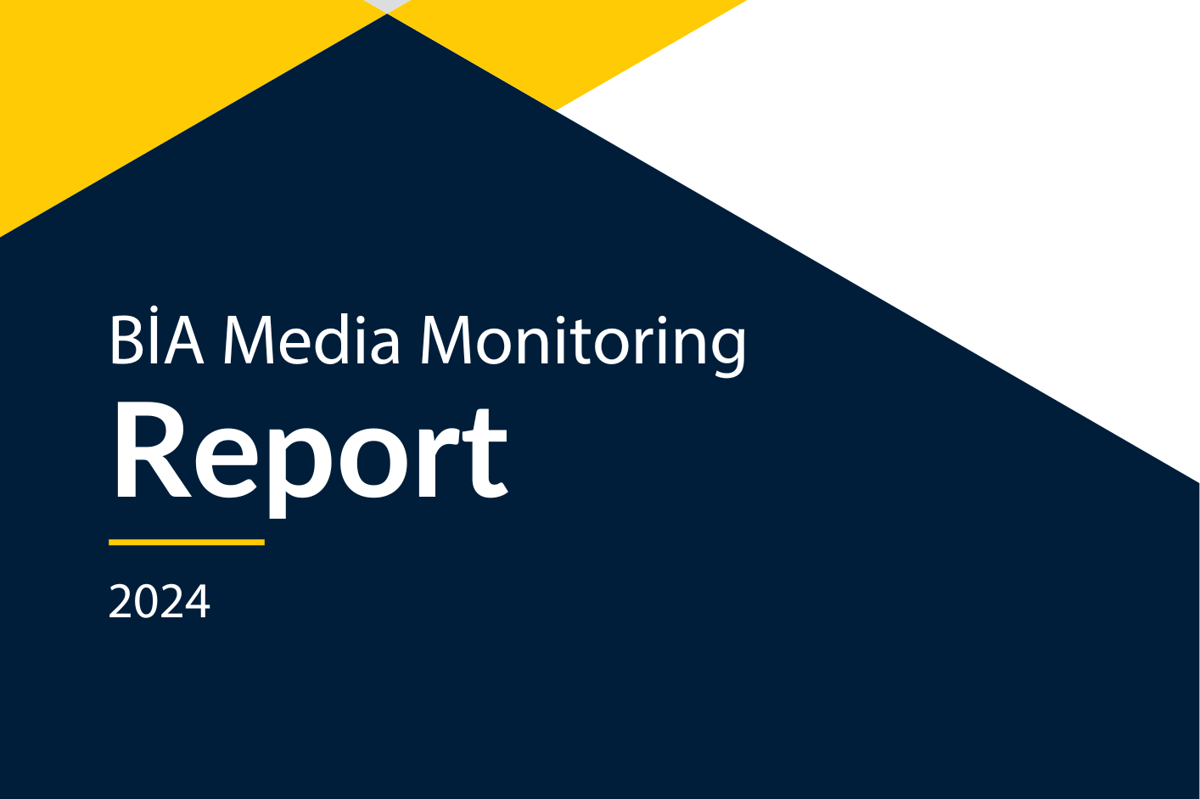
Public authorities in Turkey systematically harassed well-known journalists throughout 2024, aiming to silence them through online censorship, detention, and arbitrary lawsuits. These efforts also sought to criminalize these journalists with measures such as judicial control and house arrest.
The year 2024 saw the Constitutional Court formally recognize as violations the online censorship imposed by the Penal Judgeships of Peace, often justified under the pretext of "personal rights," the arbitrary press advertisement bans by the Press Advertisement Institution, and administrative interventions labeled as "disinformation." In addition to these violations, explicit threats made by government partner Devlet Bahçeli and circles within the MHP against journalists seriously undermined public confidence in the rule of law for those striving to inform the public.
Despite this, two years after paving the way for using the "spreading misleading information" (disinformation) regulation as a weapon against journalists, the government created an unsettling atmosphere for media outlets and civil society organizations funded through international sources with the proposed "agent of influence" draft bill that had been looming for six months. Turkey ranks 158th out of 180 countries in the 2024 World Press Freedom Index by Reporters Without Borders (RSF).
The BİA Media Monitoring Report, which highlights numerous ways the right to report news was violated in 2024, reveals that at least 25 journalists and five media outlets were attacked, and 82 media representatives—mostly targeted by the MHP and affiliated political groups—were threatened in an environment where the judiciary remained inactive. According to the report, at least 10 journalists were subjected to imprisonment; 57 reporters and YouTuber journalists were detained, often facing police violence and subsequently released under judicial control measures such as travel bans, mandatory signature requirements, or house arrest. Access was blocked to 3,136 news reports and journalistic content, and three broadcast bans were imposed. The Radio and Television Supreme Council (RTÜK) deprived Açık Radyo of its license and issued fines totaling 72,145,860 liras, along with two broadcast suspensions and five program suspensions.
57 journalists detained, 10 imprisoned
In 2024, 57 journalists, including those covering social protests or celebrations like May Day or Newroz, and YouTuber journalists like Nevşin Mengü and Özlem Gürses, whose commentary displeased authorities, were detained. Judicial control measures, increasingly common in the form of travel bans or mandatory signature requirements, took on a more alarming dimension with Gürses being placed under "house arrest" (electronic monitoring).
Although large-scale operations against the media decreased compared to previous years, at least 10 journalists faced imprisonment in 2024. Targets of these detentions included local journalists like Süleyman Gençel and İdris Özyol, representatives of Kurdish media such as Esra Solin Dal and Erdoğan Alayumat, and journalists like Furkan Karabay and Kazım Güleçyüz.
36 journalists convicted, 53 acquitted in 2024
Over the past year, at least 36 journalists (e.g., Gözde Bedeloğlu, Naci Sapan, Can Ataklı, Erkan Çapraz, Furkan Karabay) were convicted on charges such as "insulting a public official," "insulting the President," "targeting officials involved in counterterrorism," "terrorist propaganda," and "membership in a terrorist organization." The total sentences handed down amounted to 97 years, 9 months, and 2 days in prison, alongside judicial fines totaling 67,040 liras. During the same period, 53 journalists (e.g., Elif Akgül, Haluk Kalafat, Canan Rojin Akın, Barış Pehlivan, Ali Duran Topuz, Görkem Kınacı) were acquitted in criminal cases filed against them.
In 2024, three convictions for 'insulting the president'
Last year, at least three journalists (Uğur Koç, Levent Gültekin, and Hayko Bağdat) were convicted on charges of “insulting the President,” while 17 journalists or cartoonists are still on trial, facing up to 4 years and 8 months in prison.
Article 299 of the Turkish Penal Code (TCK), titled “Insulting the President,” has, during President Erdoğan’s 10-year tenure, served as the basis for the prosecution of over 250 journalists, with at least 77 of them sentenced to imprisonment or fines, some of which were suspended.
Four million liras lawsuits against five journalists and six outlets
By the end of the year, at least five journalists (Timur Soykan, Barış Pehlivan, İsmail Arı, Ceren Sözeri, and Hazal Ocak) and six media outlets were on trial in five lawsuits seeking a total of 4,015,000 liras in damages for alleged “violations of personal rights.” For instance, Halk Bankası filed a 1 million liras damages lawsuit against BirGün newspaper and investigative journalist Timur Soykan in December over the article titled “550 million loan from Halkbank to the mafia.”
25 journalists and 5 outlets attacked, 82 journalists threatened
In 2024, at least 25 journalists and five media outlets (Halk TV, KRT, Anadolu Agency, Demirören News Agency, and İslahiye’nin Sesi) were attacked, nine of these incidents occurring during the election period. Additionally, 82 media representatives—mostly targeted by the MHP and affiliated political groups—were threatened in an environment where the judiciary remained inactive.
Significant rulings by the Constitutional Court
Although the Constitutional Court did not resolve a high number of journalist-related cases in 2024, it issued critical violation rulings regarding arbitrary censorship stemming from the “violation of personal rights” and “national security” provisions of Law No. 5651 on the Internet. On Oct 10, 2024, the Court annulled the provision concerning the “violation of personal rights.” Furthermore, the Court canceled a Presidential Decree concerning activities carried out under the Presidency’s Directorate of Communications in the name of “combatting manipulation and disinformation,” citing that such actions could lead to “interference with freedom of the press and expression.”
Additionally, the Court annulled the regulation under a Presidential Decree establishing the Strategic Communication and Crisis Management Department within the Directorate of Communications for the purpose of “combatting manipulation and disinformation.”
The Constitutional Court, which continues to receive new applications from numerous journalists such as Bülent Mumay, also addressed cases involving media outlets such as Evrensel, Cumhuriyet, BirGün, Sözcü, and Tunceli Emek, condemning the arbitrary advertisement bans imposed by the Press Advertisement Institution (BİK).
The Court ruled for a total compensation of 174,094 liras in cases such as those involving Bizim FM, Sinan Aygül, and Sultan Eylem Keleş (in which the pronouncement of the verdict was deferred).
Penal judgeships of peace and RTÜK, a threat to democratic journalism
Following the Constitutional Court’s annulment of Article 9 of the Internet Law on Oct 10, 2024—which had been misused for “violation of personal rights”—Penal Judgeships of Peace continued to enforce online censorship under new justifications such as “national security” or “protection of privacy.”
In 2024, these courts imposed access bans on at least 3,136 news reports and journalistic content under such pretexts. They also issued at least three broadcast bans, including coverage of the Narin Güran murder, the TUSAŞ attack in Ankara, and a shooting incident at the Bursa Courthouse.
In the same year, RTÜK Chairperson Ebubekir Şahin publicly made statements interfering with critical channels’ broadcasts, threatening editorial independence. RTÜK imposed fines totaling 72,145,860 liras on television and radio outlets, as well as two broadcast suspensions and five program suspensions.
ECtHR rulings on Parıldak and Büken cases
The European Court of Human Rights (ECtHR) awarded a total of 27,000 euros in compensation in response to the unjust detention complaints of Ayşenur Parıldak and Ahmet Büken last year.
Additionally, 12 journalists were reported to have been dismissed from their jobs in 2024.
Legal actions targeting bianet in 2024
bianet and its staff were also affected by the systematic climate of repression in 2024. Numerous bianet articles were subjected to access bans, while its reporters faced police violence, detentions, and legal proceedings due to their journalistic activities.
bianet reporters Tuğçe Yılmaz and Ali Dinç, who were covering the Newroz celebrations at Yenikapı in İstanbul, were attacked by the police. Tuğçe Yılmaz was detained for three days as part of an Eskişehir-based investigation and released under judicial control measures, including a travel ban and mandatory signature requirements.
bianet editor Evrim Kepenek was prosecuted for “disinformation” due to a post related to the Maraş earthquakes and was also charged with “insult” and “violation of privacy” over reports on child abuse.
bianet reporter Hikmet Adal was summoned twice for questioning due to his articles.
Journalists Haluk Kalafat and Elif Akgül were acquitted in a case under Article 301 of the Turkish Penal Code (TCK), brought against them over articles published on bianet.
(EÖ/VC/VK)
BİA MEDIA MONITORING/OCTOBER-NOVEMBER-DECEMBER 2024
Truth concealed through repression from all sides targeting journalists
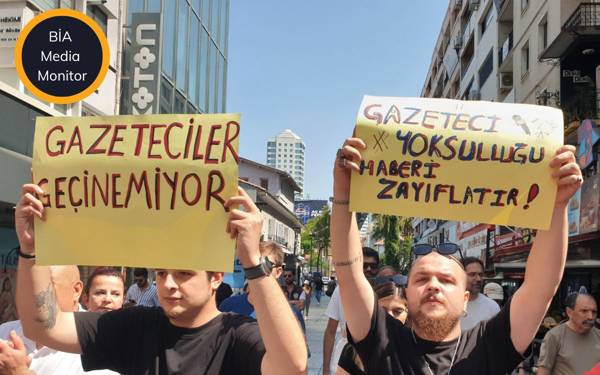
BİA MEDIA MONITORING REPORT
Just silence the journalist, and I won't touch you!
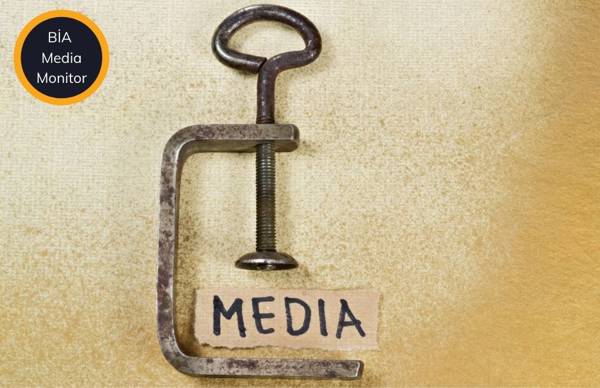
BİA MEDIA MONITORING APRIL-MAY-JUNE 2024
Journalists are on the target and have no legal security anymore!
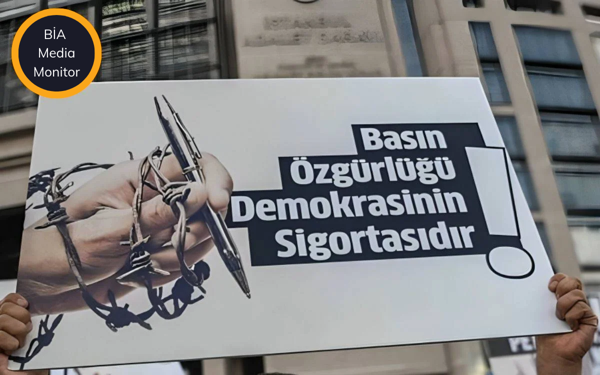
BİA MEDIA MONITORING REPORT
The era of 'judicial control' confinement and torture in journalism

BİA MEDIA MONITORING / JULY-AUGUST-SEPTEMBER 2023
Desire to silence journalists to conceal crimes
